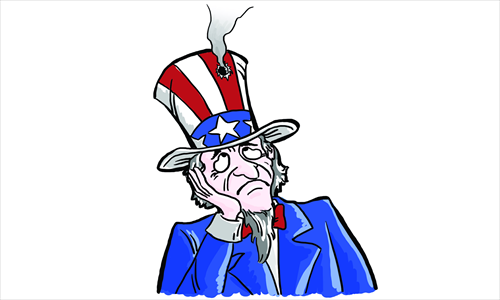Regime change policy hits hard reality

The US ambassador to Libya, Chris Stevens, and three other embassy staff were killed in an attack on the US consulate in Benghazi Tuesday night. It is too early for an overall assessment of the assassination. However, the circumstances under which it took place need careful examination at this time.
The immediate trigger of the violence appears to be an anti-Islamic film clip created by a supposed Israeli citizen, "Sam Bacile," living in California. However, it's now looking increasingly likely that Bacile used a pseudonym and that he is probably not Israeli, or even Jewish, but may have ties to the Egyptian Coptic exile community.
Questions are being asked about Bacile's sources of funding for his 13-minute "film trailer," which uses crudely overdubbed footage from a project which, according to the actors involved, was supposedly a historical epic unrelated to Islam. Bacile appears to have ties through anti-Islamic right-wing extremist Steve Klein to militia groups and hate movements in the US.
The timing of the release of the trailer linked to September 11 raises further questions.
No doubt the FBI and the US intelligence community will have much to consider in their investigations.
US President Barack Obama's remarks and tone responding to this tragic event were appropriate. But he was accused by Republican candidate Mitt Romney for taking a so-called "apologetic" position.
Romney was correctly chastised by US Senator John Kerry, chairman of the Senate Committee on Foreign Relations, and others in both parties for his shocking and disgraceful outburst against the president and commander-in-chief at a time when national unity is needed.
The assassination of the ambassador and his colleagues underscores the bankruptcy of US foreign policy in the region. Washington's policy of regime change in the region may well lead to an "Arab Winter" rather than to an "Arab Spring" and the so-called pivot to Asia may stumble in the Middle East quagmire.
Looking at the overall situation in the Middle East and North Africa, it is becoming clear that the political trend is Islamist rather than secular. While Washington may have believed its regime change policy would bring on moderation through democracy, it would appear extremism is gaining over moderation as symbolized by the assassinations in Benghazi.
At the time of the Anglo-French war against Libya, backed by the US, serious observers raised questions about the nature of the so-called democratic opposition. They said extremist elements were involved and some had connections to Al Qaeda. Also, they warned that removing strongman Muammar Gaddafi would lead to instability and violent extremism not only in Libya but also in the region.
The subsequent instability in Libya and rising violence were all too predictable and there have been repercussions in Mali, in Nigeria, and elsewhere in the region.
There are sharp contradictions in Washington's Middle East policy.
The policy of regime change in Syria aligned the US with extremist Salafist and Wahhabi political and terrorist groups in the region.
Extremist jihadi fighters from North African countries such as Libya are waging what they believe to be a holy war in Syria. Some of these groups have links with Al Qaeda and similar organizations and they move in and out of Libya at will.
Calm and searching reflection are needed by Washington on its Middle East policy. The regime change policy was announced in the Clinton administration and implemented in the Bush and Obama administrations.
Americans are reaping the tragic whirlwind and it is time for a serious and searching reappraisal agonizing as it may be.
The author is an educator and former senior professional staff member of the Senate Committee on Foreign Relations. opinion@globaltimes.com.cn